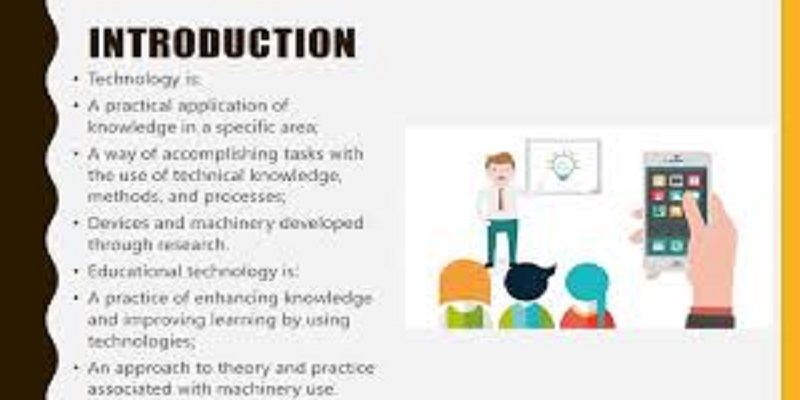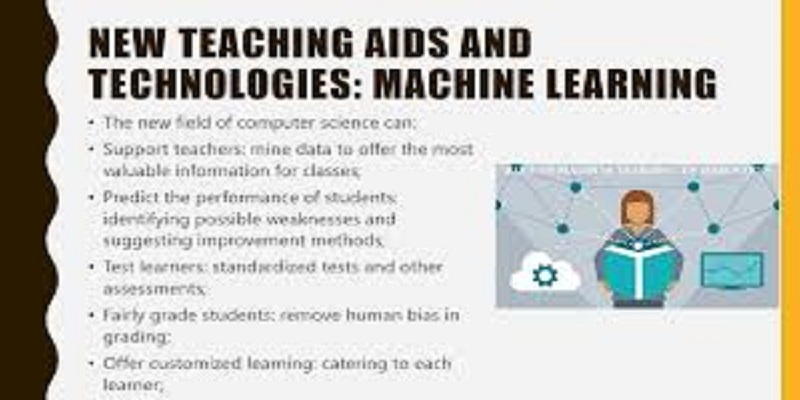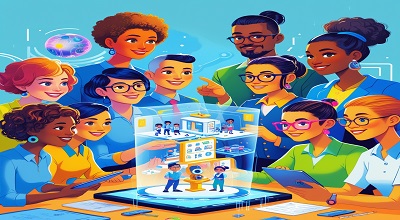Next-Gen Teacher Training
Next-Gen Teacher Training: The role of teachers has evolved dramatically in recent years. In the ever-changing educational landscape, traditional methods of teacher training are no longer enough. The emergence of new technologies, teaching strategies, and an emphasis on personalized learning are prompting educators to rethink how teacher training is approached.
This article delves into the next generation of teacher training, offering insight into innovative methods, best practices, and real-world examples of how education systems around the world are adapting to the needs of the 21st century.

What is Next-Gen Teacher Training?
Next-gen teacher training refers to modern, dynamic approaches designed to equip teachers with the skills, knowledge, and tools necessary to thrive in an increasingly digital and diverse classroom environment. This involves moving away from conventional in-service training programs and adopting innovative methods that incorporate technology, research, and a student-centered focus.
Key aspects of next-gen teacher training include:
- Integration of technology in classrooms.
- Emphasis on personalized and differentiated learning.
- Collaborative learning and peer-to-peer exchanges.
- Continuous professional development through micro-credentialing and online platforms.
- Focus on emotional intelligence and mindfulness for teachers.

The Evolution of Teacher Training
Teacher training has undergone a significant transformation over the past few decades. From traditional workshops and seminars to online courses, the approach to professional development is diversifying. Here are some key milestones in the evolution of teacher training:
- Traditional Teacher Training: Historically, teacher preparation was focused on theoretical knowledge, usually delivered through university programs or in-person workshops.
- The Rise of Online Learning: As technology became more accessible, online courses began supplementing face-to-face training. Teachers could now learn at their own pace, engaging with interactive resources and virtual classrooms.
- The Shift to Personalized Learning: Recognizing the need for teachers to be adaptable and flexible, training programs shifted towards personalized learning, where teachers could choose areas to specialize in or receive targeted support.
- Integration of Technology and AI: The incorporation of technology into classrooms, including the use of AI tools for personalized education, has revolutionized how teachers are trained, preparing them for the digital classroom.
- Focus on Continuous Learning: The shift towards lifelong learning encourages teachers to continually improve their skills and adapt to new educational trends.

Best Practices in Next-Gen Teacher Training
Several strategies have emerged as best practices for training teachers in the modern era. These practices are proven to enhance teacher effectiveness and prepare them for future challenges:
1. Collaborative Learning Communities
Teachers are now encouraged to collaborate with their peers to share ideas, discuss challenges, and develop solutions together. Collaborative learning communities foster a culture of mutual support and continuous improvement. For example, teacher-led study groups or professional learning networks (PLNs) enable teachers to exchange teaching strategies, resources, and experiences.
2. Blended Learning Models
Blended learning combines online and face-to-face instruction, offering flexibility and convenience. This model allows teachers to learn at their own pace while still receiving support through in-person interactions. For instance, a teacher might take an online course in classroom management and then attend a live webinar for practical tips.
3. Micro-Credentials and Badges
Micro-credentials are small, focused certifications that teachers can earn by demonstrating mastery in specific areas. These credentials allow teachers to specialize in certain subjects or skills, making it easier for them to stay updated in their fields. For example, a teacher could earn a micro-credential in using technology for student engagement or in restorative classroom practices.
4. Personalized and Adaptive Learning
Next-gen training emphasizes the importance of personalized learning. Teachers receive training that is tailored to their individual needs, learning styles, and goals. Adaptive learning technologies can help assess a teacher’s strengths and weaknesses, providing them with the resources and support they need to grow.
5. Emotional Intelligence and Mindfulness
Teachers are now trained in emotional intelligence (EQ) and mindfulness techniques to enhance their ability to manage stress, build positive relationships with students, and improve classroom environments. Programs often include workshops on self-awareness, empathy, and stress management.

Case Studies of Next-Gen Teacher Training
1. Finland’s Teacher Training Model
Finland is widely regarded as a leader in education. Their teacher training model emphasizes critical thinking, collaboration, and a deep understanding of pedagogy. Teachers in Finland are required to complete a master’s degree, and professional development is continuously encouraged throughout their careers. Finnish teacher training programs also focus on personal well-being and work-life balance, ensuring teachers remain motivated and effective in the classroom.
2. Teach for America’s Digital Teacher Training Program
Teach for America has embraced the power of digital platforms to train teachers, especially in underserved communities. Their digital training program incorporates a blend of virtual modules, classroom observations, and hands-on teaching experiences. This allows teachers to access resources anywhere and anytime, making professional development more accessible.
3. Singapore’s Focus on Reflective Practice
In Singapore, teacher training emphasizes the importance of reflective practice. Teachers are encouraged to continually assess their teaching methods, identify areas for improvement, and implement strategies for growth. Singapore’s model has led to the development of one of the most effective education systems in the world.

The Role of Technology in Next-Gen Teacher Training
1. Artificial Intelligence (AI) and Machine Learning
AI-powered tools can assist teachers in personalizing learning for their students, but they can also play a crucial role in training teachers. AI-based platforms can analyze a teacher’s instructional techniques, providing real-time feedback and suggesting improvements. For example, AI-driven platforms like Squirrel AI offer adaptive learning environments for teachers, allowing them to hone their skills and become more effective educators.
2. Virtual Reality (VR) and Augmented Reality (AR)
Virtual and augmented reality offer immersive training experiences that simulate classroom scenarios, enabling teachers to practice new strategies in a controlled environment. This technology can help teachers develop classroom management skills, learn how to handle challenging behaviors, or practice delivering complex lessons.
3. Online Learning Platforms
Platforms like Coursera, EdX, and Khan Academy offer a wealth of courses that teachers can take to further their education. Many of these courses focus on topics such as digital literacy, educational technology, and advanced pedagogy, allowing teachers to develop essential skills for today’s classrooms.
Challenges in Next-Gen Teacher Training
Despite the many advancements in teacher training, there are several challenges that educators and institutions must overcome:
1. Resistance to Change
Some teachers may resist adopting new methods or technologies, especially if they are comfortable with traditional teaching practices. Overcoming this resistance requires continuous support and a clear understanding of the benefits of next-gen training.
2. Access to Resources
Not all teachers have access to the latest training tools or technologies. Budget constraints and disparities in access to professional development opportunities can hinder the implementation of next-gen training programs.
3. Time Constraints
Teachers often face heavy workloads, making it difficult for them to find time for professional development. Flexible, on-demand training programs are essential to overcoming this barrier.

Future Trends in Teacher Training
1. Increased Focus on Global Collaboration
As education becomes more globalized, teachers will have more opportunities to collaborate with peers from different countries. Online platforms and virtual exchange programs will continue to play a key role in fostering this global community.
2. Integration of Data Analytics
Data analytics will be increasingly used to assess teacher performance and personalize training. By analyzing student outcomes and teacher performance, educational institutions can design more effective and targeted professional development programs.
3. Lifelong Learning
The concept of lifelong learning will continue to shape the future of teacher training. With the rapid pace of change in education, teachers will need to engage in continuous learning throughout their careers to stay current with new pedagogical strategies, technologies, and content areas.
FAQs about Next-Gen Teacher Training
1. What is next-gen teacher training?
Next-gen teacher training refers to innovative and modern methods of teacher development that focus on technology, personalized learning, and continuous professional growth.
2. How does technology play a role in next-gen teacher training?
Technology enables personalized learning experiences, provides real-time feedback, and allows teachers to access professional development resources anytime, anywhere.
3. What are micro-credentials and how do they benefit teachers?
Micro-credentials are small, specialized certifications that help teachers develop expertise in specific areas, allowing them to continuously improve their skills and enhance their professional profiles.
4. Why is emotional intelligence important in teacher training?
Emotional intelligence helps teachers manage stress, build positive relationships with students, and create a supportive learning environment, all of which contribute to better educational outcomes.
5. Can AI help teachers improve their skills?
Yes, AI-powered platforms can provide personalized feedback and learning resources to help teachers improve their teaching methods and stay updated with the latest educational trends.
Free Download Link: I Am Security MOD APK
